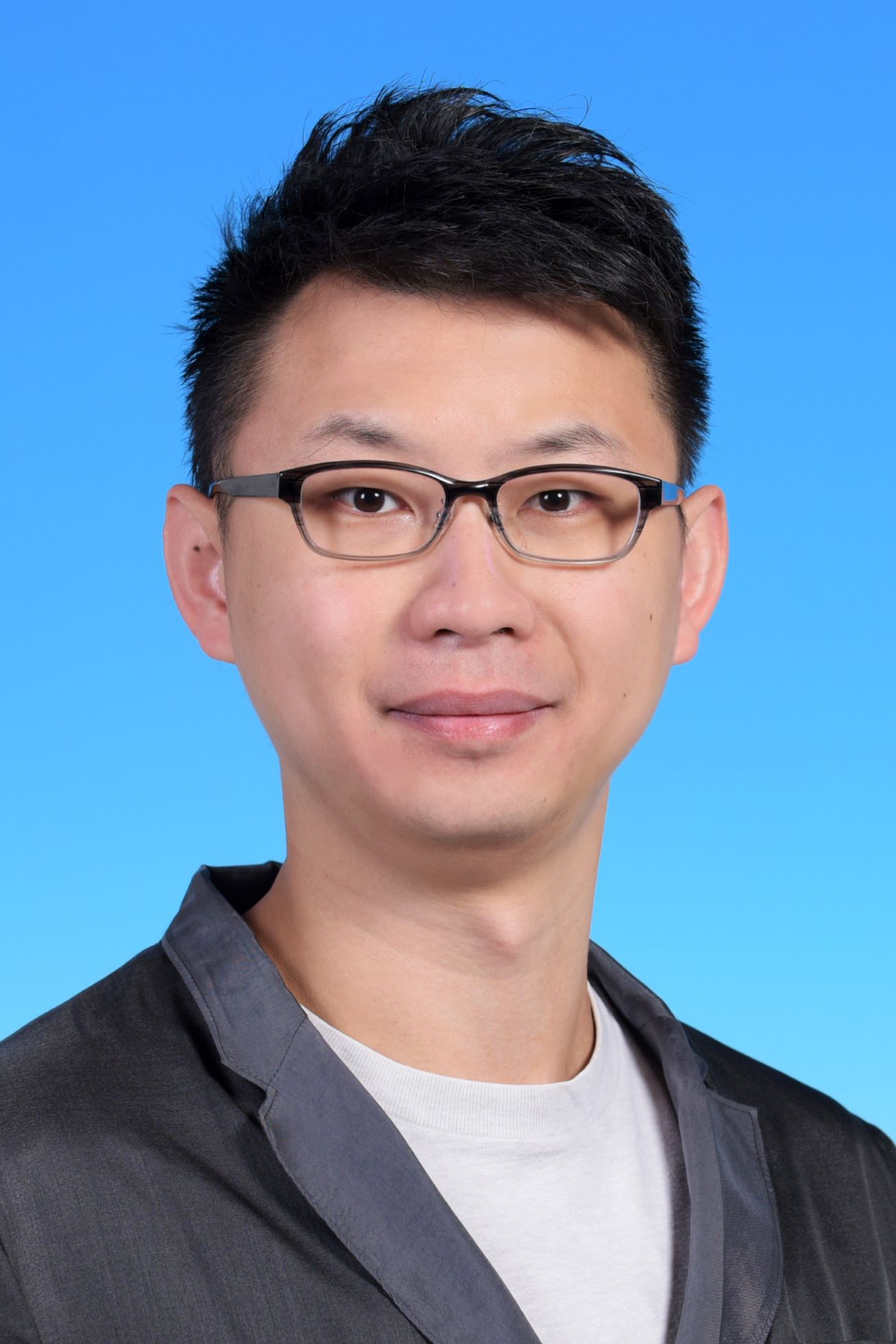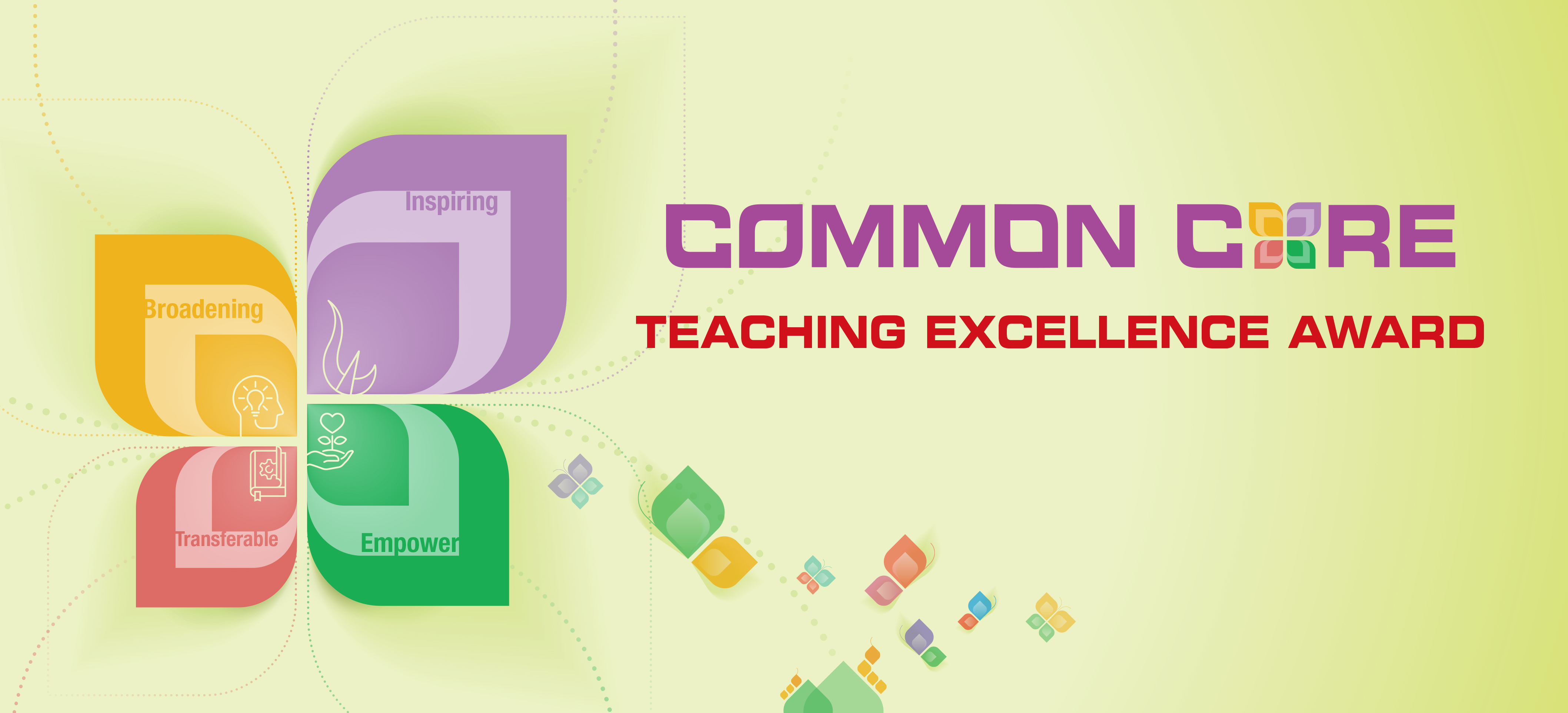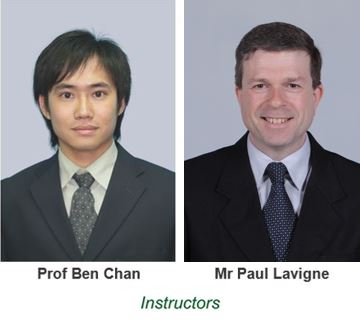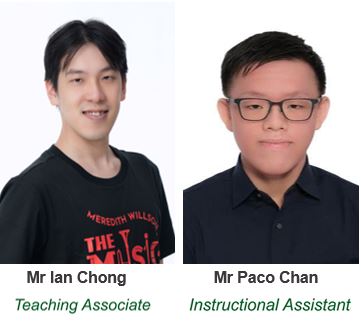|
Common Core Teaching Excellence Award Recipients2023 Award Recipients
Award Recipients of the Common Core Teaching Excellence Award 2024 | 2022 | 2021 | 2020 | 2019 | 2018 | 2017 | 2016Award Recipients of the Common Core Course Excellence Award 2015 | 2014 | 2013 | 2012More About the Award 
|
||||||||||||||||||||||||||||||||
 Professor Kenneth Leung
Professor Kenneth Leung
Department of Computer Science and Engineering
Course Taught: CORE 1231 Exploring Multimedia and Internet Computing
Making STEM education accessible to all learners not only widens the number of people keen to pursue these essential areas, it also broadens understanding generally of these core subjects for technological innovation in an increasingly device-driven world.
Leading the way is Prof. Kenneth Leung, who in CORE 1231 has pioneered an outstanding blended educational approach, making the acquisition of computational thinking skills by mostly non-engineering students stimulating and attainable within a fun yet purposeful learning environment.
To Kenneth, “happy classes make happy students” and his ingenious, self-named What-You-See-Is-What-You-Get (WYSIWYG) course design clearly achieves this. As one student noted: “Learning has become a delight” and the teaching “altered my perspective on what constitutes effective methods of instruction”. It is also demonstrated by the class’s popularity, as seen in its attendance rates and notably high instructor and course scores in student evaluations.
In Kenneth’s WYSIWYG approach, flipped classroom pedagogy is thoughtfully organized and effectively employed. Interactive online video lectures lay a solid knowledge base, and face-to-face teaching includes hands-on, student-centered activities that captivate attention, foster peer collaboration, and enable application of programming and computer science knowledge and skills. Debate, not always a major factor in engineering courses, is fully integrated at different stages, bringing students to fresh realizations and strengthening interactivity.
In CORE 1231, assessment methods form another area of innovation and interest. Among them are quizzes completed at learners’ own pace, peer-evaluated app development group projects, and project videos. As such, they serve to show students’ their own progress, enhance knowledge-sharing, and build teamwork abilities, as well as appraise.
In multiple student testimonies, Kenneth’s beyond-conventional-boundaries approach is commended, while he himself is recognized for his hard work and preparation, continuous encouragement, and willingness to help in and outside class time.
Through his dedication to novel and engaging education, and passion for igniting know-how, Kenneth serves as an exemplary model for Common Core educators. The Selection Committee therefore has great pleasure in recommending Kenneth for the 2023 Common Core Teaching Excellence Award.
Professor Ben Chan and Mr Paul Lavigne
School of Engineering
Course Taught: CORE 1200 Engineering Team Design Experience
As society and workplaces accelerate toward ever-greater integration of humans and technology, crucial capabilities for the next generation will revolve around ideas, decision-making, and transferable skills. Certainly difficult to teach and assess, but essential to the young movers and shapers of tomorrow who will drive such change.
With the development of CORE 1200, Prof. Ben Chan and Mr. Paul Lavigne have successfully risen to this challenge. By setting the task of delivery of an intriguing creative project – such as designing and building the 2050 HKUST campus in an interactive, real-time, 3D virtual environment – they have unleashed innovative thinking, problem-solving capabilities, and engineering design skills among students from different Schools and disciplines.
The two educators adopted a learn-by-doing philosophy to actively foster students’ growth as creators and team players. This approach was underpinned by “co-creation”, where students and educators work together to foster a more meaningful learning experience. Pedagogies leveraging the latest interactive online tools were also employed. Immersive learning was provided through a mixed-reality classroom. Meanwhile a “4P” creativity development framework and Miro-board interactive activities deepened students’ understanding and critical reflection on what creativity entails.
Feedback and evaluations from students have demonstrated CORE 1200’s impact beyond grades. One lauded the virtual classroom for providing unlimited space to design, create, and freely express her creativity. Another remarked she now felt better prepared “for the challenges of a career that will demand innovative solutions to complex problems in a world that is ever-changing”. In addition, the course’s framework and educational strategies have been widely disseminated via conferences, seminars, news reports, and social media.
Future-ready and rewarding, lively and interactive, the dynamic creativity development experience originated by Ben and Paul in CORE 1200 ably shows why they deserve their Honorary Mention for excellence as Common Core educators.


